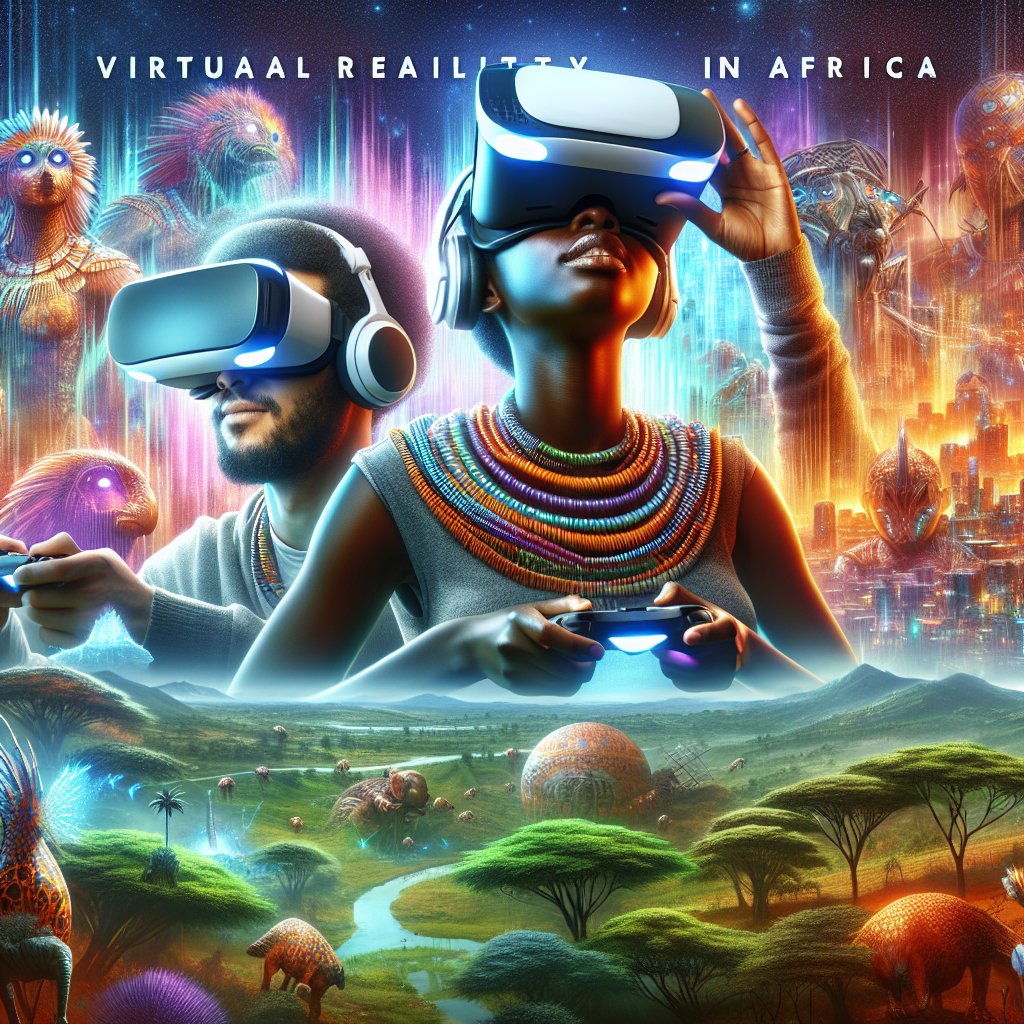Virtual Reality in Africa: Exploring New Realms of Gaming Experiences
In recent years, the landscape of gaming has undergone remarkable transformations, with Virtual Reality (VR) emerging as a groundbreaking technology that promises to redefine the way players interact with virtual worlds. While VR has made significant strides in North America and Europe, Africa is harnessing this technology to create immersive gaming experiences that are not only thrilling but also culturally relevant. As the realm of Virtual Reality continues to evolve on the continent, it opens up new opportunities for developers, gamers, and the broader community.
The Rise of VR Gaming in Africa
The gaming industry in Africa has begun to flourish, buoyed by increased internet penetration, smartphone usage, and supportive government policies aimed at fostering innovation and entrepreneurship. This shift provides a fertile ground for VR, which offers an engaging alternative to traditional gaming formats. Studios across the continent, from South Africa to Nigeria, are dedicated to exploring what VR has to offer, producing games that range from adventure and simulation to educational and cultural experiences.
VR gaming can transport players into entirely new environments, allowing them to interact with richly crafted universes that reflect African narratives and folklore. Developers like the South African company, Mellow Gaming, are creating VR titles that celebrate local cultures and stories, enabling players to experience the continent’s rich heritage in an interactive format. This connection to cultural roots not only enriches the gaming experience but also promotes local narratives on a global platform.
Unique Opportunities and Challenges
The integration of VR into gaming in Africa presents a myriad of opportunities. Educational institutions are increasingly adopting VR as a tool for learning, with applications in fields ranging from healthcare to architecture. By simulating real-life scenarios, students can engage in experiential learning that is both effective and innovative.
However, the journey is not without its challenges. High costs associated with VR hardware and software development make it less accessible for many developers and gamers. Despite the proliferation of affordable smartphones, the availability of advanced VR equipment, such as headsets, is limited in many regions. Additionally, the lack of robust infrastructure, including stable electricity and internet access, poses significant barriers to widespread VR adoption.
Fostering Community and Collaboration
To overcome these obstacles, collaboration and community-building are essential. Developers in Africa are increasingly forming collectives and networks to share resources, knowledge, and best practices. Events such as the Africa Games Week and the South African Game Development Conference provide platforms for budding game developers to showcase their work, exchange ideas, and form partnerships with industry veterans.
Furthermore, international collaborations are paving the way for mentorship and access to advanced technology. By connecting African developers with global giants in the VR space, local talent can leverage global expertise to elevate their projects, ultimately contributing to a more vibrant gaming ecosystem.
The Future of VR Gaming in Africa
Looking ahead, the future of VR gaming in Africa appears promising. With increasing interest from both local and international investors, a new wave of funding is becoming available for innovative gaming startups. This financial support is crucial for enhancing the technical capabilities of African developers, enabling them to create more sophisticated and engaging VR experiences.
Moreover, as technological barriers continue to diminish, emerging innovations such as cloud gaming might play a pivotal role in democratizing access to VR content. Players could experience high-quality games through streaming services, eliminating the need for expensive hardware.
Conclusion
Virtual Reality has the potential to revolutionize the gaming landscape in Africa by providing immersive experiences that resonate with local cultures and communities. While challenges remain, the collective efforts of developers, investors, and gaming enthusiasts are setting the stage for a vibrant future. By embracing this technology, Africa is not only stepping into new dimensions of entertainment but also positioning itself as a formidable player in the global gaming industry. As the continent continues to explore these new realms of experience, the world eagerly watches the innovative and culturally rich narratives that emerge from this thriving gaming frontier.




